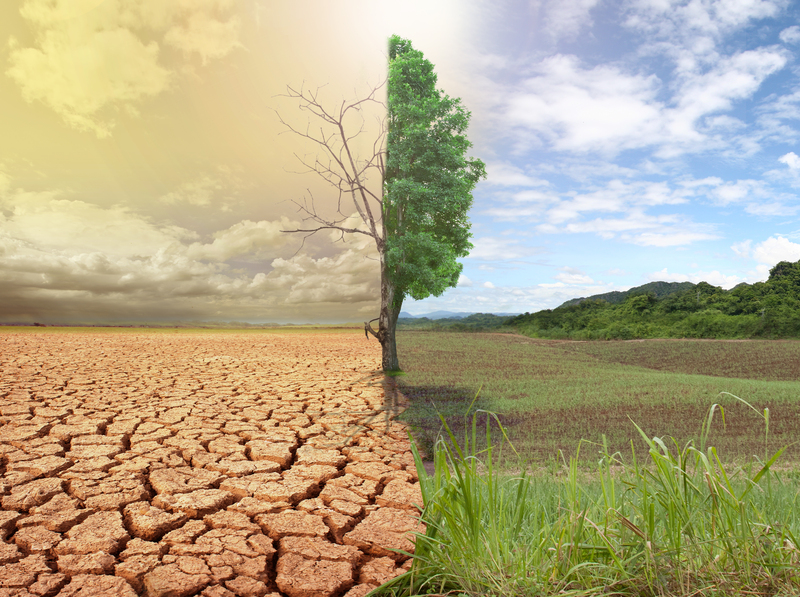Introduction: The Importance of Waste Composting
Waste composting is a vital practice that not only helps in reducing the amount of waste that ends up in landfills but also enriches the soil with essential nutrients. As the world pivots towards more sustainable practices, having a handy waste composting handbook can empower you to contribute positively to the environment.

Getting Started with Composting
To embark on your composting journey, you'll need to select the appropriate composting method that suits your lifestyle and living situation. Whether you opt for backyard composting, vermicomposting, or using a composting bin, the process generally involves three fundamental steps: collection, decomposition, and utilization.
- Collection: Gather organic waste materials. These can include kitchen scraps like vegetable peels, fruit rinds, and coffee grounds, as well as yard waste such as leaves, grass clippings, and small branches.
- Decomposition: Create conditions favorable for microorganisms to break down the organic material. This usually involves maintaining a proper balance of green (nitrogen-rich) and brown (carbon-rich) materials, moisture, and aeration.
- Utilization: Once the compost has matured, it can be used to enhance garden soil, potted plants, and landscaping projects.
The Composting Process
Composting is a biological process that transforms organic waste into rich, dark, soil-like material. To ensure successful composting, it is crucial to understand the roles of various components:
- Carbon and Nitrogen Ratio: A balanced mix of green and brown materials promotes efficient decomposition. Aim for a 30:1 ratio of carbon to nitrogen.
- Aeration: Decomposing microorganisms need oxygen. Regularly turning your compost pile introduces fresh air and speeds up the decomposition process.
- Moisture: Compost should be damp, like a wrung-out sponge. Too little moisture slows down microbial activity, while too much moisture can lead to anaerobic conditions.
- Temperature: A well-maintained compost pile can reach temperatures of 130-160?F, which helps in faster decomposition and pathogen elimination.
Types of Composting Methods
Different composting methods cater to various needs and circumstances. Here are some popular options:
Backyard Composting
Ideal for households with a garden, backyard composting involves building a compost heap or using a bin to manage organic waste. It's effective for managing larger volumes of waste from both kitchen and garden.
Vermicomposting
This method uses worms, typically red wigglers, to break down organic waste. Vermicomposting is suitable for apartment dwellers or those with limited space. The result is nutrient-rich worm castings, excellent for potted plants and gardens.
Trench Composting
This technique involves burying organic waste directly in the soil. Over time, the waste decomposes and enriches the soil. Trench composting is a no-fuss method, ideal for gardeners looking to improve soil fertility with minimal effort.
Common Composting Challenges and Solutions
While composting is relatively straightforward, several challenges can arise:
- Odors: Bad odors usually indicate too much nitrogen or moisture. Adjusting the green-to-brown ratio and improving aeration typically resolves this issue.
- Pests: To deter pests, avoid composting meat, dairy, and oily foods. Secure your compost bin with a lid and ensure proper bin design.
- Slow Decomposition: If your compost isn't breaking down quickly, it might lack sufficient aeration, moisture, or nitrogen. Regularly turn the pile and ensure the right balance of materials.
Pros and Cons of Composting
Pros:
- Reduces waste in landfills
- Enriches soil and promotes healthier plant growth
- Lowers greenhouse gas emissions
- Can be cost-effective
Cons:
- Requires consistent maintenance
- May attract pests if not managed correctly
- Not all materials are compostable
Tips for Successful Composting
To maximize your composting efforts, consider these tips:
- Shred or chop larger items before adding them to the compost.
- Maintain a 3:1 ratio of browns to greens for optimal decomposition.
- Turn the compost pile every 1-2 weeks to oxygenate and speed up the process.
- Monitor moisture levels and add water if the pile is too dry.
- Cover your compost pile to protect it from rain and prevent excess moisture.

Key Takeaways
- Composting is an eco-friendly way to manage household waste.
- Understanding the basics of carbon-nitrogen balance, moisture, and aeration is crucial.
- Different composting methods cater to various living conditions and waste volumes.
- Regular maintenance ensures a healthy and productive composting process.
Conclusion
Composting is a rewarding practice that significantly contributes to sustainability and environmental preservation. By following the guidelines in this handbook, you can transform your kitchen and garden waste into valuable compost that enhances soil fertility and promotes healthier plant growth. While there are challenges, the benefits far outweigh the drawbacks, making composting a worthwhile endeavor for anyone looking to reduce their environmental footprint.
---
By integrating these practices into your daily routine, you'll not only manage waste more sustainably but also create a richer, more vibrant garden. Start composting today and take a significant step towards a greener future!


